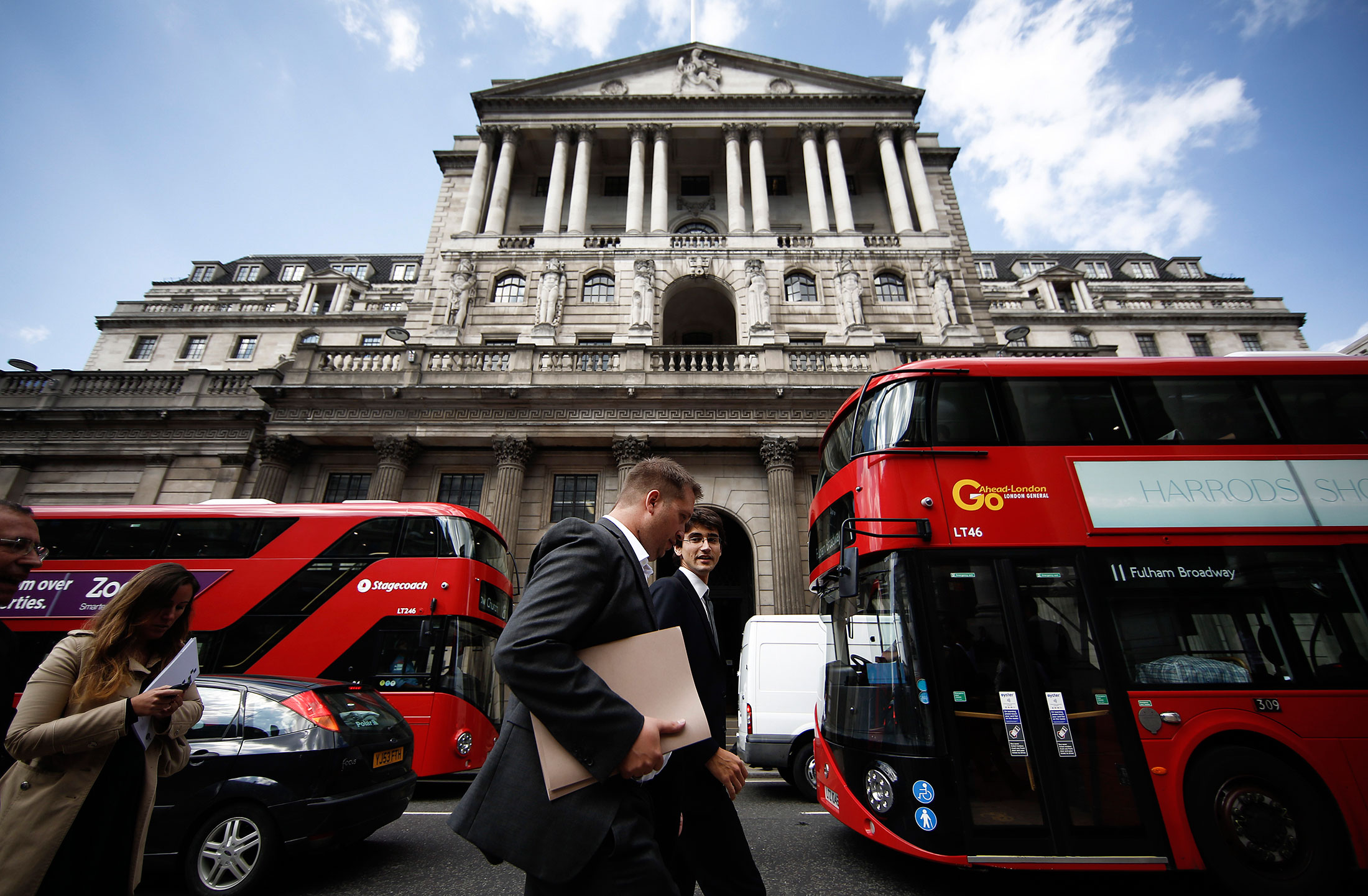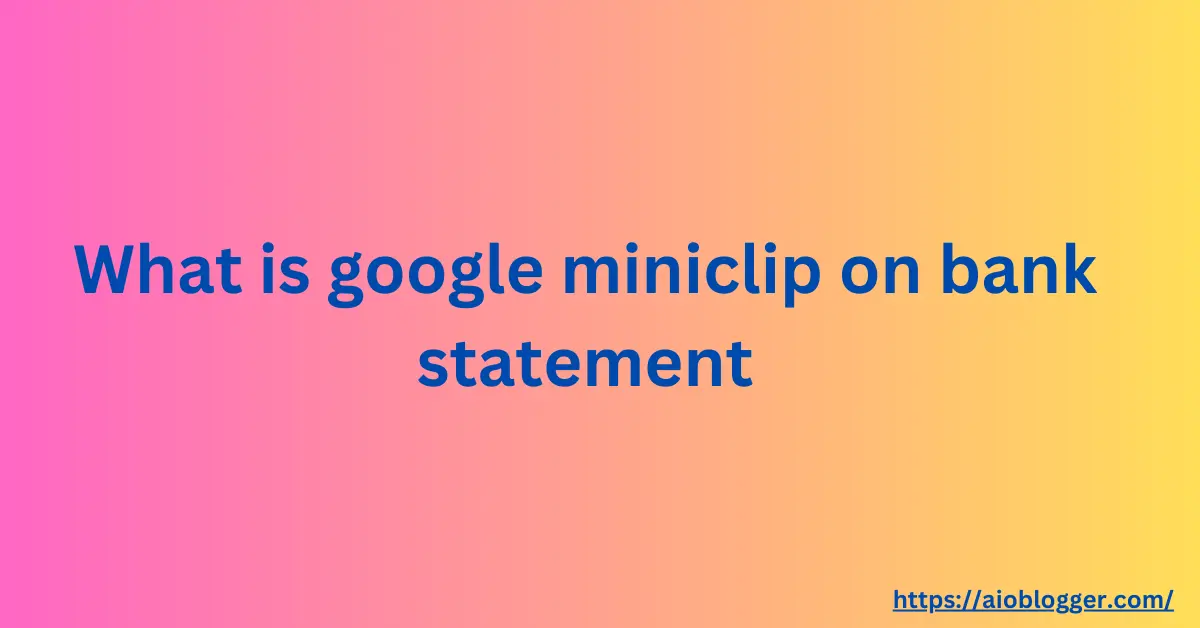Hey there! You’re checking your bank statement and see a charge listed for ‘London GB.’ At first glance it seems a bit odd – did you take a secret trip across the pond that you forgot about? Probably not. Seeing a charge like that can be confusing, but there’s actually a simple explanation. London GB is just a way your bank identifies purchases made in British pounds, even if you never set foot outside your hometown. In this article, we’ll break down London GB on bank statement really means so you don’t have to worry about any mystery transactions. We’ll also give some tips on how to recognize other confusing bank descriptions. Before you call your bank in a panic, read on to get the inside scoop on London GB and other unclear statement entries.
What Is the OF London GB Bank Charge?
Ever notice a mysterious charge on your bank statement for “OF LONDON GB” and wonder what it means? Don’t worry, it’s not fraud. This charge simply refers to an international transaction fee. Any time you make a purchase from a merchant located outside the U.S., your bank may charge an international transaction fee, usually around 1-3% of the total transaction amount.
Why Do Banks Charge This Fee?
Banks charge intern_ational fees mainly to cover the added costs of processing foreign transactions. Cross-border payments often take extra time and resources for banks to facilitate, so they pass on these costs to consumers in the form of international fees. Some banks waive these fees for certain accounts or if you meet a minimum balance requirement. It’s worth checking with your bank to see if they offer any ways to avoid or reduce international transaction charges.
While the “OF LONDON GB” notation itself is harmless, it’s still a good idea to regularly monitor your statements for any unauthorized charges. But when it comes to legitimate international purchases, try not to get too annoyed by these kinds of fees-your bank is just covering their costs for providing a convenient service. And look on the bright side, at least your money got to do some traveling!
How Does OF London Charge Look Like?
Ever notice London GB on bank statement and wonder what it means? Don’t worry, your account hasn’t been hacked. ‘London GB’ simply refers to charges made in British pounds in London, England.
Currency Conversion Fees
When you make a purchase in London using your debit or credit card, the amount is first converted from pounds sterling to your home currency, like U.S. dollars. Your bank then charges you a small currency conversion fee for handling the transaction, usually around 3% of the total purchase price. These conversion and service fees are listed as London GB on bank statement.
ATM Charges
Withdrawing cash from an ATM in London will also result in ‘London GB’ charges on your statement. In addition to any fees your bank charges for using an international ATM, the machine itself may charge an access fee. Check with your bank to see if they waive or reimburse some ATM charges to avoid surprise fees.
Purchase Protection
The good news is, purchases and withdrawals showing as London GB on bank statement are typically protected in the same way as domestic transactions. So if there are any issues with a merchant or ATM, your bank’s fraud liability and dispute resolution policies should still apply.
Using your payment cards in London may incur some extra charges, but the convenience and security are often worth the fees. As long as the ‘London GB notation on your statement matches your receipts and the total seems accurate, you can feel confident using ATMs and making purchases throughout London. Just be sure to notify your bank right away of any unauthorized charges.
How to Handle an Unauthorized OF London Charge
Check Your Statement
The first step is to check your bank or credit card statement for an unauthorized charge from “OF London.” This charge could be fraudulent, indicating your account information has been compromised. Review all charges on the statement to ensure there are no other unauthorized transactions.
Contact Your Bank
Call your bank or credit card issuer immediately upon discovering the unauthorized charge. Report the fraudulent charge and request to dispute the transaction. They will conduct an investigation to determine the validity of the charge. In the meantime, they may issue you a temporary credit for the amount while the investigation is pending.
Monitor Accounts Closely
Unfortunately, once your account information has been stolen, it can be used again for future unauthorized charges. Carefully monitor your statements over the next several months for any suspicious activity. It’s also a good idea to change online banking passwords, set up two-factor authentication if available, and be cautious of phishing emails. By taking proactive steps, you reduce the risk of further fraud on your accounts.
The most important things are catching unauthorized charges quickly, contacting your bank right away, and remaining vigilant in the coming months. Following these steps can help limit the damage from fraud and prevent future compromised transactions. Let your bank handle disputing the OF London charge, while you focus on account security going forward.
Tips to help you identify the transaction
When you see London GB on bank statement, it typically means the transaction took place in London, UK. However, it’s not always easy to identify exactly what the charge was for. Here are a few tips to help determine the details:
Check the amount. The dollar amount can provide clues, whether it’s a small, recurring charge you recognize or a larger one-time fee. Rack your brain to recall any subscriptions, bills or other payments you may have recently made in that amount.
Note the date. Think about any transactions, events or purchases that took place around that same date. Retrace your steps to jog your memory. Even rough estimates of dates can help identify mysterious charges.
Look for a company name. Sometimes the company name or a shortened version of it will appear along with the location. Search online to find the full company name and see if it rings any bells.
Check your records. Go through your receipts, invoices, statements and records to find any mention of a company based in London that matches the amount and date. This can solve the mystery and prevent fraudulent charges from slipping through.
Contact your bank. If you’ve tried the other tips and still can’t determine what the “London GB” charge refers to, contact your bank directly. They may have additional details about the merchant or be able to conduct an investigation to verify the charge is legitimate before disputing it.
Staying on top of all transactions, especially those from international locations, is key to avoiding unwanted fees and ensuring your account security. With some detective work, you can get to the bottom of the mysterious “London GB” charge.
Understanding Unauthorized OF London GB Bank Charges

What is London GB charge?
When you notice a charge on your bank statement listed as “London GB,” it typically means an unauthorized transaction has been made, often from a compromised debit or credit card. These charges are fraudulent and should be disputed immediately with your bank.
How did this happen?
Your card number, expiration date, and security code were likely stolen, either through a data breach, skimming device, or phishing scam. The thieves then used this information to make purchases, gambling transactions, or fund private ATM withdrawals – all of which will show up as “London GB” on statements. Unfortunately, card fraud of this nature is common.
What should you do?
Contact your bank or card issuer right away to report the fraudulent charges. They will cancel your current card and reissue you a new one. You should also closely monitor statements for additional fraudulent activity. Although unauthorized charges are unsettling, banks are typically very understanding in these situations and will waive the fraudulent fees. The most important thing is taking action quickly to limit the damage.
By following up promptly with your bank about any “London GB” charges and taking normal fraud prevention steps like using chip cards and monitoring statements, you can gain confidence that this type of situation will be handled and your risk of loss minimized. While no system is foolproof, awareness and vigilance provide the best defense.
Why should you check your statements?
You should always check your bank statements regularly to ensure there are no errors or unauthorized charges. London GB on bank statement refers to charges made in British pounds in London, England.
Checking your statements helps you stay on top of your finances and catch any issues early on. For example, if there are any charges you don’t recognize, it could indicate fraud or identity theft. The sooner you notice unauthorized charges, the sooner you can report them to your bank and limit the damage. By closely monitoring your accounts, you have a better chance of disputing erroneous or fraudulent charges before too much time passes.
Staying on top of your statements also helps give you an accurate picture of your spending and budget. When you review charges line by line, you may notice spending patterns you want to change or expenses you can reduce. Keeping a close eye on your accounts means no surprises at the end of the month!
In summary, reviewing your bank statements regularly is one of the best financial habits you can develop. Take some time each month to scrutinize your statements and look for any errors, unauthorized charges or opportunities to strengthen your budget. Your accounts and wallet will thank you.
How to Identify London GB on bank statement

Seeing an unrecognizable transaction on your bank statement can be alarming. If you notice “London GB” listed, don’t panic-it’s likely just a foreign transaction fee from your bank.
When you make a purchase from a merchant outside the U.S., your bank may charge a small fee, usually around 1-3% of the total transaction amount. This is known as a foreign transaction fee. The “London GB” notation indicates the transaction took place in London, United Kingdom.
To identify the charge, first check your recent purchases. Did you book a hotel, buy a product from a UK-based company, or make another international
transaction? If so, “London GB” probably refers to the foreign transaction fee for that purchase.
Next, examine the amount listed next to “London GB. It should be a small percentage of one of your other recent charges. For example, if you see a $100 charge for a UK merchant, followed by a $2 “London GB” fee, that likely represents a 2% foreign transaction fee.
If you still can’t determine what the “London GB” charge refers to, contact your bank for more details. They should be able to look up the transaction in their
records and provide information to identify the related purchase for which they charged the foreign transaction fee.
If you still can’t determine what the “London GB” charge refers to, contact your bank for more details. They should be able to look up the transaction in their records and provide information to identify the related purchase for which they charged the foreign transaction fee.
In the future, you may be able to avoid these fees by using a credit card that doesn’t charge foreign transaction fees when making international purchases. But when the fees do appear, check your statements closely and don’t assume it’s fraud-it’s usually just your bank’s way of covering the costs of currency exchange.
What are bank statement abbreviations?
Ever look at your bank statement and wonder what all those three-letter codes mean? Bank statements are full of abbreviations to represent various charges, debits, and credits. Next time you review your statement, you’ll know what those shorthand codes stand for.
Some of the most common bank statement abbreviations you’ll see are:
-ATM: Automated Teller Machine. This means a cash withdrawal from an ATM. -POS: Point of Sale. This refers to a purchase you made using your debit card.
The name of the merchant will also be listed.
-ACH: Automated Clearing House. This indicates an electronic transfer of funds to or from your account, like for bill payments. -DEP: Deposit. Money that was added to your account, like from your paycheck or by depositing cash.
-WDL: Withdrawal. Money taken out of your account, either by you or by a merchant for a purchase.
-OVD: Overdraft. A charge for overdrawing your account.
Each bank uses their own set of abbreviations, but most are common across the industry. The next time you get your statement, take a look at the list of abbreviations in the footer. That way there won’t be any surprises when you review your transactions. Understanding these shorthand codes helps make managing your money that much easier.
Why is it important to understand bank statement abbreviations?
London GB on bank statement refers to charges made in Great Britain, specifically London. While it may seem like an insignificant notation, understanding the abbreviations on your statements is actually quite important.
Knowing these codes helps you verify charges and ensure there’s no fraudulent activity on your account. You’ll want to double check any abbreviations you don’t recognize to confirm they match legitimate purchases or payments. Unfamiliar codes could indicate an error or, in worst cases, fraud.
Staying on top of your finances requires understanding what each transaction means. Don’t just glance at the total balance and toss the statement aside.
Carefully review each line item to understand the origin and details of all debits and credits. If something looks off, contact your bank right away. It’s always better to be safe in these situations.
Overall, while London GB itself is nothing to worry about, using it as an opportunity to thoroughly review your entire statement is a smart financial habit.
Knowledge is power, and understanding the details of your bank accounts leads to greater security, awareness and control of your money. Making sense of all
those little letters and numbers really does matter.
FAQ
Have you ever checked your bank statement and seen “London GB” listed for certain charges? Don’t worry, your account hasn’t been hacked or compromised.
“London GB” simply indicates the location of the merchant who processed your transaction.
Many major credit card companies are headquartered in the UK, hence the “London GB” notation. Although the charge went through their systems, the actual
merchant you made a purchase from could be located anywhere. The listing is mainly for the bank’s record keeping.
If you did not make or authorize the charges in question, that’s a different story. You should contact your bank or credit card company immediately to report the fraudulent transactions. They can investigate, issue you a new card number, and ensure you are not held liable for the charges. Always monitor statements regularly and report anything suspicious right away.
Better safe than sorry, but in most cases “London GB” is nothing to fret over. Consider it a routine listing on your statement, denoting the processing location for your everyday purchases and payments. No action needed your money and information remain secure.
Conclusion
So there you have it now you know what London GB on bank statement means. It simply refers to purchases you’ve made in London, England, which banks label as “London GB” to specify the location. Mystery solved! Hopefully this info helps provide clarity when you’re reviewing charges and transactions. While it may seem strange at first, that abbreviation is normal and nothing to worry about. Just remember it’s showing where the transaction took place, even if you were the one who made the purchase. Pretty straightforward once you know what it stands for. Next time you see “London GB,” you’ll recognize it right away.



